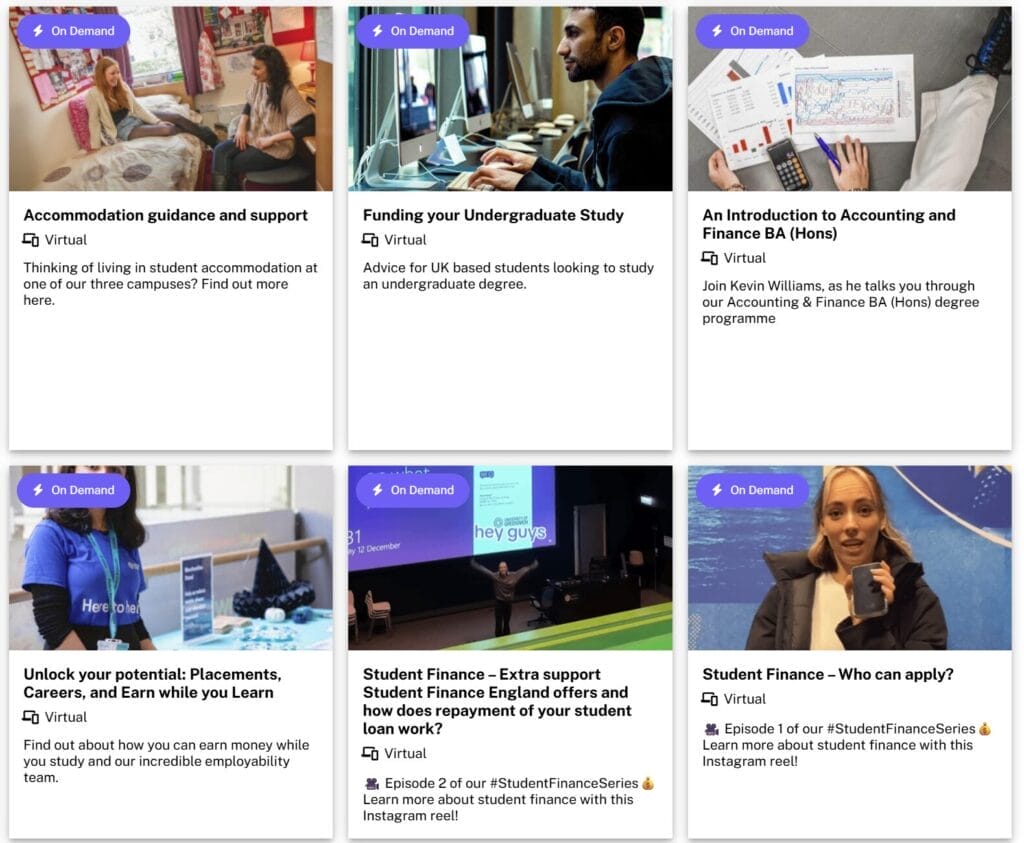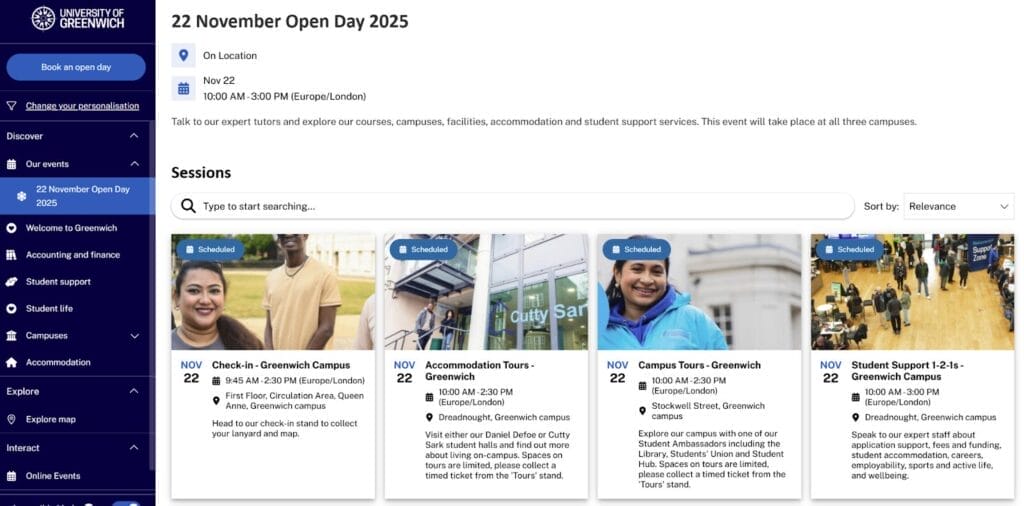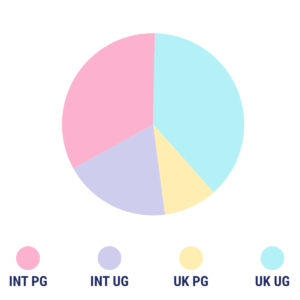💡 TL;DR
Running separate virtual campus tours and in-person Open Days didn’t split attention — it increased it.
The Challenge
The University of Greenwich successfully implemented hybrid events post-pandemic, using Vepple to support virtual attendance at each in-person Open Day.
Guided by their data, the university’s Events team decided to rethink their strategy for 2025 and challenge the post-pandemic default they’d offered. Their goal was to engage more audiences and build stronger connections with prospective students and applicants at every stage of their journey.
What Greenwich Did
The Events team decided to separate virtual events from in-person Open Days, giving each its own date, focus, and audience, rather than running them at the same time.
This shift let them create more tailored experiences for every type of student, while also redefining how Vepple supported each format.
For virtual events, Vepple became the central hub for sessions and capturing data to understand audience behaviour.

For in-person Open Days, Vepple evolved into an interactive event companion – helping visitors check in, find talks and navigate the campus.
“We trialled using Vepple almost like the Open Day guide for our in-person Open Day — people could see where to go to check in, where to find their talks, and use the maps – especially at the Greenwich campus which is particularly big. Helping show they’d have a welcome talk in one of our buildings and a subject talk which is maybe a 10-minute walk away, it solved a common problem straight away.”
– Nicola Rowe, Events Manager at the University of Greenwich.

The Impact
With in-person events continuing their long-held success, the virtual events saw an unprecedented +51% increase in virtual event attendees year-on-year (2023/4-2024/5).
This growth was reflected not only in attendance but also in the data captured through Vepple (comparing 1 February and 30 June 2025 and the same period in 2024):
- +14% sessions
- Average session time +2.6% to over 8 minutes
- +17.8% primary CTA conversions (Apply clicks, in-person Open Day bookings etc)
Another key outcome was identifying which attendee profiles engaged with each format and when. This allowed the team to understand repeat visitors, early researchers, applicant conversion and engagement differences between UG/PG, UK/home, and international students. The activity challenged assumptions and enabled strong data-driven planning as well as tailored content creation to support each audience.

Beyond the numbers, the Events team reported a smoother workflow and less manual coordination, with Vepple’s user-friendly backend, non-technical staff could easily build content, update event information, and manage attendee journeys in one place.
“If I didn’t have Vepple anymore, my life would be so much harder. Having everything in one space reduces my workload and it gives prospective students the best experience too.”
– Nicola, Events Manager, University of Greenwich
Advice to Other Universities
“Make sure you always challenge assumptions. With a largely local student population, we assumed most people would be happy to travel to events, but lots of them attended (often multiple) virtual events. That’s been a big surprise. It’s also proven that our commitment to virtual events has been really worthwhile. Vepple has been essential in helping us measure the return on our event investments and use our time more efficiently.”
– Nicola, Events Manager, University of Greenwich
The Bottom Line
By challenging assumptions and rethinking what ‘events’ should look like, Greenwich didn’t just reach new audiences; they built momentum across every stage of the student journey and unlocked new layers of insight for future strategic planning.
Not done reading?
For more information on modules, like the Events module used in this case study, go to our Features page.
If you want to explore more, view Greenwich’s Vepple experience or use our interactive demo.


